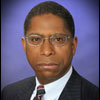01 Oct 2010 There Must Be a Flaw, by B.B. Robinson, Ph.D.
 |
There Must Be a Flaw by B.B. Robinson, Ph.D. (bio) |
Bishop Eddie Long stands accused.
Long, the leader of Atlanta’s 25,000-member New Birth Baptist Church, is accused of using his position in the church and gifts financed by it to seduce young men into homosexual encounters.
Upon hearing the allegations, two thoughts come to mind:
- Let he who is without sin cast the first stone;
- There must be a flaw.
In our media-dominated society — in which that media seems to fixate on materialism, sexual gratification and a general disdain for morality — temptation is abundant.
Given this rise in overt sexuality, it is difficult for anyone to go through their entire life without experiencing some sexual misbehavior. That someone of the stature of Bishop Long may have been seduced by it, however, is a big concern. Then again, recent history has shown that presidents all the way down to young boys and girls usually find that, somewhere in the course of their lives, they are complicated by a sexual misstep.
As for the second thought, Long’s alleged missteps are just the most recent of a long string of allegations of sexual misbehaviors charged largely against Catholic and Protestant churches.
While these are usually misbehaviors by individuals, one must still ask why we continue to see a pattern of misbehavior by church leaders. Is there possibly a flaw in Christian teachings? Is there a flaw in the church organizational structures? Is there a flaw in some aspect of church procedures, laws and rules relative to human nature, which causes sexual misbehavior to be so prevalent and proliferating on an ongoing basis?
Sexual misbehavior is just one of seven “uglies” that are plaguing black churches that I address in my new book Change: Black America’s Religion. The other six uglies are:
- Many Black churches are “gossip colonies,” like a “Peyton Place” soap opera with too much talk about problems and too little work to correct them.
- Meals and snacks laden with sugars and fats are readily available at church gatherings. These foster obesity and health problems that drain society’s resources — particularly affecting our health care system.
- Black preachers can act like pimps when they grow their congregations by wooing black women with their singing or oratorical eloquence. These women bring their husbands into the fold, but these women sometimes become more connected to their preachers than their husbands.
- As a “Robin Hood in reverse,” poor members of the congregation are asked to contribute money they don’t have to support preachers who already live quite comfortably.
- Black churches don’t work within their membership to create jobs and wealth within the congregation and within their community.
- Too few black church leaders have the knowledge or expertise to offer needed expert psychological, social, health, and financial and economic assistance to their congregants.
Due to these weaknesses in the black church, Change advocates that black America make a dramatic change.
Because religions currently appear flawed in one way or another and because there is legitimate concern that we have not benefited enough from the current structure of certain religions, black Americans might benefit from crafting their own religion.
By selectively choosing the most beneficial aspects from existing religions and rejecting their flawed aspects as well as adding new tenets, policies, rules, laws and traditions to meet current-day and anticipated future requirements, a religion more effective and beneficial for us might be the end result.
If we do this, then maybe black Americans can create a religion that may not be without flaws, but that will at least prevent — or at least minimize — the type of sexual deviancy reported in the Christian tradition for some time now.



